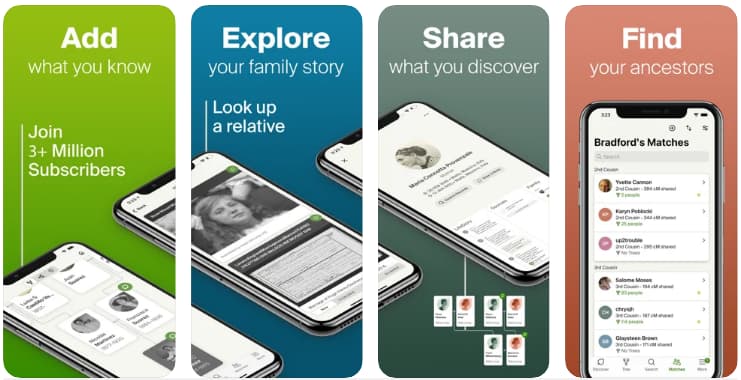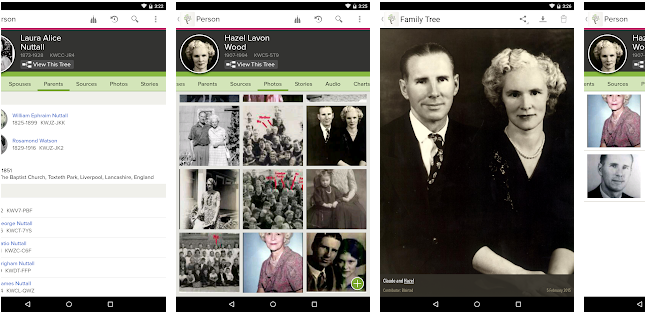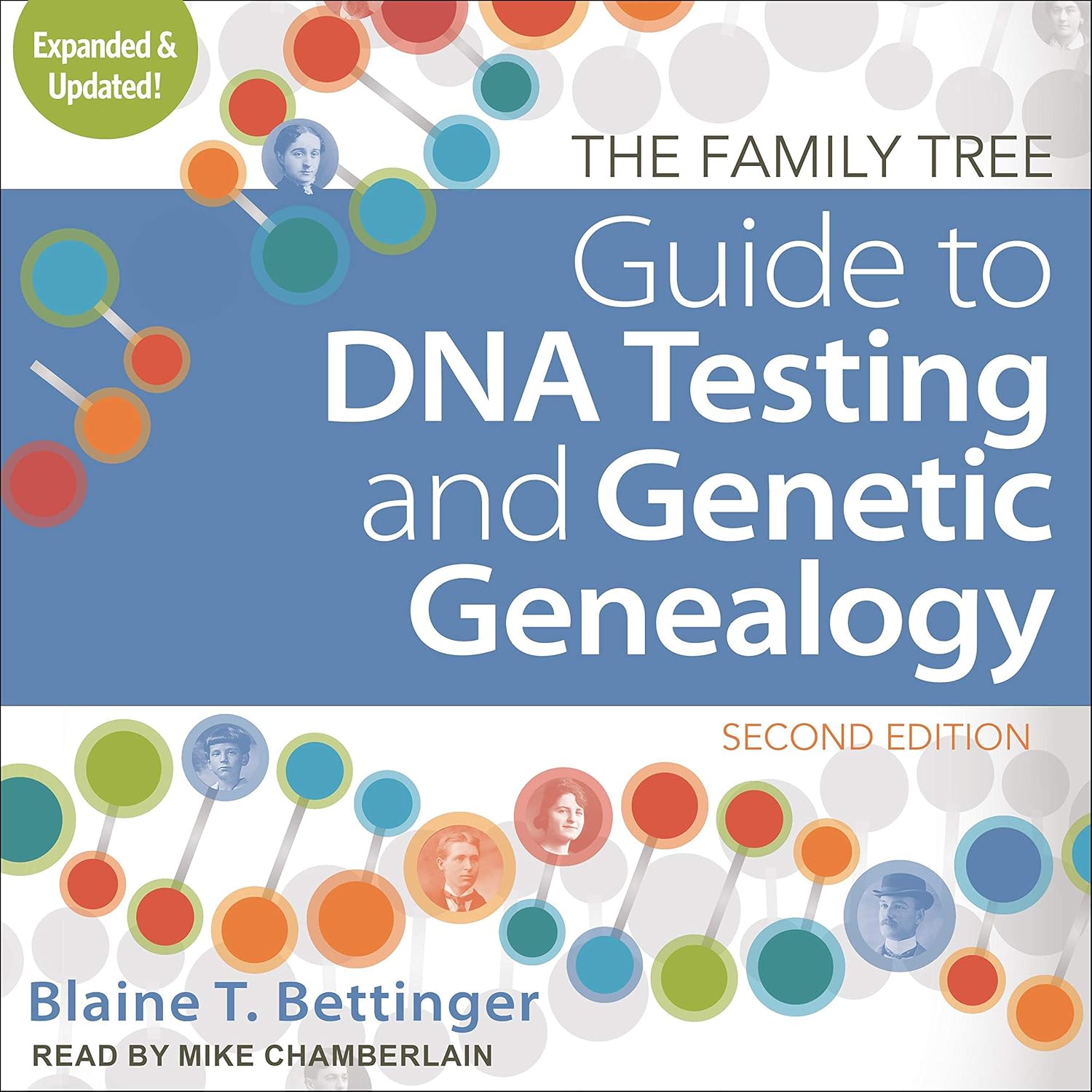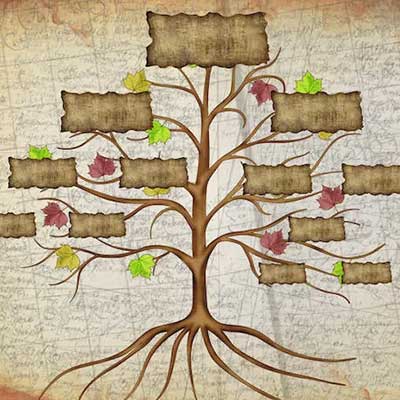- Home
- Genealogy Research Tools
- Using Family Tree Apps
Family Tree Apps for Genealogy
Let’s discuss using family tree apps for genealogy and research the pros and cons. Genealogy research has become increasingly popular in recent years, with more and more people curious about their family history and ancestry. The rise of family tree apps has made it easier than ever to trace your lineage and discover long-lost relatives. These apps offer a range of features, from bare family tree building to DNA analysis and historical records searches. However, like any technology, there are pros and cons to using family tree apps for genealogy research. On the one hand, they can save time and effort by consolidating information and providing access to many resources. On the other hand, they may need to be more accurate and reliable, and some users may find the interface confusing or overwhelming. In this article, we’ll explore the pros and cons of using family tree apps for genealogy research, so you can decide whether they’re right for you.

Pros of using family tree apps for genealogy research
- Efficiency: One of the most significant benefits of using family tree apps for genealogy research is their efficiency. With these apps, you can easily create and maintain your family tree, add new information, and share it with other family members. You can also access a wealth of resources, including historical records, photographs, and documents, all in one place.
- Collaboration: Another advantage of family tree apps is that they allow for collaboration between family members. You can invite family members to contribute to your family tree, share photos and documents, and communicate with each other through the app. This can be especially helpful if you have relatives living in different parts of the world.
- DNA Analysis: Some family tree apps offer DNA analysis as part of their service. This feature can help you discover more about your ancestry, ethnicity, and genetic predispositions. You can compare your DNA results with other users in the app’s database, which can help you find potential relatives.
Cons of using family tree apps for genealogy research
- Accuracy: One of the biggest concerns with family tree apps is their accuracy. While these apps can be a great starting point for genealogy research, they may only sometimes provide accurate or reliable information. Some apps rely on user-generated content, which can be incorrect or incomplete.
- Privacy: Another potential issue with family tree apps is privacy. Some apps may require you to share personal information, such as your name, birthdate, and location, which can concern some users. Additionally, some apps may share your information with third-party companies or advertisers, which can compromise your privacy.
- Learning Curve: Family tree apps can have a steep learning curve. Some users may need clarification on the interface, especially if they are new to genealogy research. This can make it challenging to navigate the app and find the information you need.
Popular in the Market Apps

- Ancestry.com is one of the most popular family tree apps in the market. It offers a vast collection of historical records, DNA analysis, and a user-friendly interface. Ancestry.com also provides a mobile app to access your family tree and research on the go.
- MyHeritage is another popular family tree app that offers DNA analysis and access to over 13 billion historical records. MyHeritage also offers a mobile app and a photo enhancer tool that can help you improve the quality of old family photos.
- FamilySearch tree app is free that offers access to over 4 billion historical records. It also provides a collaborative platform where family members can build their family tree together.
Features to look for
- Historical Records: Look for family tree apps that offer access to a vast collection of historical records, such as census records, birth and death certificates, and military records. The more registers available, the more likely you are to find accurate information about your ancestors.
- DNA Analysis: If you want to learn more about your ancestry and ethnicity, look for family tree apps that offer DNA analysis as part of their service.
- Collaboration: Look for family tree apps that allow collaboration between family members. This can be especially helpful if you have relatives living in different parts of the world.
Tips for using the apps effectively
- Start with What You Know: When building your family tree, start with what you know. Begin with yourself and work your way back through your parents, grandparents, and great-grandparents.
- Verify Your Information: Always verify the information in family tree apps. Cross-check the information with other sources, such as census records, birth and death certificates, and church records.
- Stay Organized: As you add information to your family tree, stay organized. Use consistent naming conventions and keep track of your sources.
How to choose the right family tree app for your research needs
- Consider Your Budget: Family tree apps can vary in price, from free to several hundred dollars per year. Consider your budget and choose an app that fits within your budget.
- Research the Features: Look for family tree apps that offer the features you’re interested in, such as DNA analysis, historical records, and collaboration.
- Read Reviews: Before choosing a family tree app, read reviews from other users. This can give you a better understand the app’s strengths and weaknesses
Comparing free vs. paid versions of family tree apps
Some family tree maker apps offer both free and paid versions of their service. While the free family tree apps version may be sufficient for some users, the paid version often provides additional features and benefits. Paid versions may provide access to more historical records, advanced DNA analysis, and better collaboration tools.
Alternatives to family tree apps for genealogy research
If you’re uncomfortable using family tree apps, there are alternative methods for genealogy research. You can visit local archives and libraries, hire a professional genealogist, or attend conferences and workshops.
Family tree apps can be an excellent tool for genealogy research, but they do have their pros and cons. While they can save time and effort, they may only be accurate or reliable sometimes. When choosing a family tree app, consider your budget, research the features, and read reviews from other users. And remember, regardless of the method you select, genealogy research is a rewarding and fascinating journey that can help you discover more about your family history and heritage.














